detail profile gillo pontecorvo
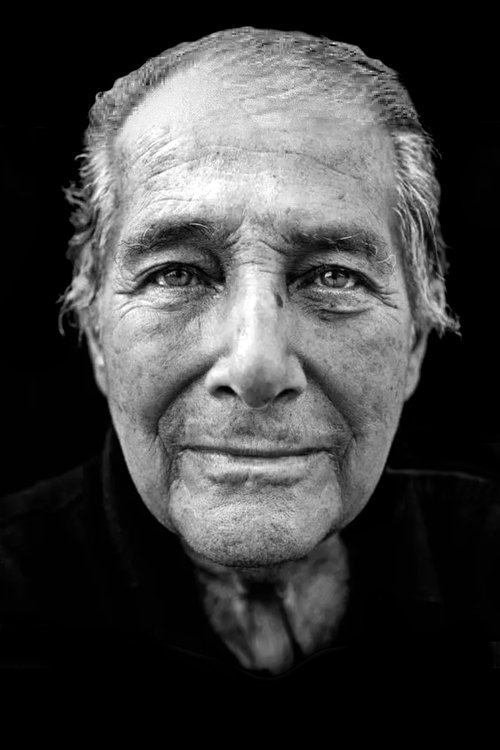
Gillo Pontecorvo
질로 폰테코르보
atau dikenal sebagai
Riwayat Hidup
Gillo Pontecorvo, born November 19, 1919 in Pisa and died October 12, 2006 in Rome, is an Italian filmmaker.
Of Italian Jewish origin, Gillou Pontecorvo is the brother of Bruno Pontecorvo, a nuclear physicist working for the USSR, and Guido Pontecorvo, an Italian-British geneticist, as well as the grandson of the Jewish industrialist Pellegrino Pontecorvo.
He has three sons: Marco (cinematographer and director), Simone (painter) and Ludovico (physicist).
A chemist by training, he quickly turned to journalism and became correspondent in Paris for several Italian publications.
In 1941, he joined the Italian Communist Party (PCI), and participated in anti-fascist activities in northern Italy.
After the Soviet repression of the Budapest uprising in 1956, he broke with the PCI, while continuing to claim Marxism.
He started in cinema after the Second World War as assistant to Yves Allégret1 and Mario Monicelli in particular.
From 1953, he produced his first documentary essays (Giovanna, MM, 1956).
In 1956, he contributed to an episode of Die Windrose, supervised by Alberto Cavalcanti.
The following year, he directed his first feature film, A Called Squarcio (La grande strada azzurra, produced by Maleno Malenotti, based on a novel by Franco Solinas).
Then he describes the concentration camp world in the film Kapò (1960), the story of a Jewish woman who becomes an auxiliary of the Nazis.
The film was nominated for an Oscar for best foreign language film in 1961.
It gave rise to a famous controversy over the "Kapò tracking shot", which Jacques Rivette had deemed unworthy in an article in Cahiers du cinéma entitled "De l' abjection.
” In 1966, he directed his most important film, The Battle of Algiers (La Battaglia di Algeri), a reconstruction of the police action of the French army during the Battle of Algiers which was a fundamental episode of the war.
from Algeria.
This film was awarded the Golden Lion at the Venice Festival, but remained banned in France for a long time and its exploitation caused a lot of uproar linked to the scenes of torture committed by the French army.
In Queimada (1969), dominated by the interpretation of Marlon Brando, he once again attacks colonialism, with an evocation of the Haitian revolution at the beginning of the 19th century.
Faced with the commercial failure of Queimada, Pontecorvo stopped making films.
He still directed a secondary film, Operation Ogre (Ogro, 1979), on the assassination of Luis Carrero Blanco by ETA during Francoism, and collaborated on the film L'addio a Enrico Berlinguer (1984).
In 1992, he was appointed director of the Venice Film Festival.
In 1993, during the 50th edition of the Mostra, Pontecorvo presented Steven Spielberg with an honorary Golden Lion, at the time of the release of Schindler's List.
He died on October 12, 2006, at the age of 86, in Rome, Italy.
Info Pribadi
Peran Yang Di Mainkan Gillo Pontecorvo
 Cheikh Djema looks back on the...
Cheikh Djema looks back on the...La Bataille d'Alger, l'empreinte 2018
Cheikh Djemaï looks back on the genesis of Gillo Pontecorvo’s feature film, The Battle of Algiers (1965). Through archive images, extracts from the film and interviews with personalities, the filmmaker retraces the journey of a major work - from the events of the Algiers Casbah (1956-1957) to the presentation of the Lion of 'Or causing the anger of the French delegation in Venice - which left its mark as much in the history of cinema as in that of Algeria.
 This 17minute documentary is featured on...
This 17minute documentary is featured on...Five Directors On The Battle of Algiers 2004
This 17-minute documentary is featured on the 3-Disc Criterion Collection DVD of The Battle of Algiers (1966), released in 2004. An in-depth look at the Battle of Algiers through the eyes of five established and accomplished filmmakers; Spike Lee, Steven Soderbergh, Oliver Stone, Julian Schnabel and Mira Nair. They discuss how the shots, cinematography, set design, sound and editing directly influenced their own work and how the film's sequences look incredibly realistic, despite the claim that everything in the film was staged .
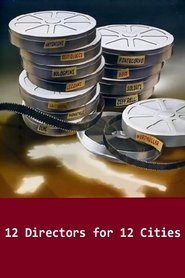 Promotional omnibus film made for the 1990...
Promotional omnibus film made for the 1990...12 Directors for 12 Cities 1989
Promotional omnibus film, made for the 1990 FIFA World Cup in Italy, featuring portraits of 12 Italian cities.
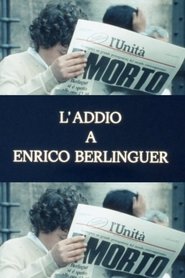 A film of Enrico Berlinguers funeral...
A film of Enrico Berlinguers funeral...Farewell to Enrico Berlinguer 1984
A film of Enrico Berlinguer's funeral in Rome, briefly tracing his career as leader of the Italian Communist Party.
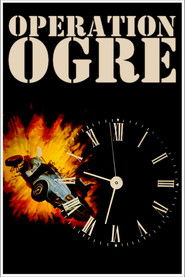 Spain 1973 Dictator Francisco Franco has ruled...
Spain 1973 Dictator Francisco Franco has ruled...Operation Ogre 1979
Spain, 1973. Dictator Francisco Franco has ruled the country since 1939 with an iron fist; but he is now a very old and sick man. The future of the weakened regime is in danger. Admiral Carrero Blanco is his natural successor. The Basque terrorist gang ETA decides that he must die to prevent the dictatorship from continuing.
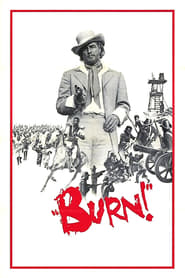 The professional mercenary Sir William Walker...
The professional mercenary Sir William Walker...Burn! 1969
The professional mercenary Sir William Walker instigates a slave revolt on the Caribbean island of Queimada in order to help improve the British sugar trade. Years later he is sent again to deal with the same rebels that he built up because they have seized too much power that now threatens British sugar interests.
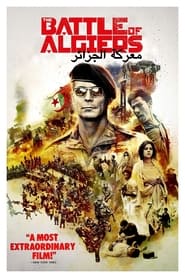 Tracing the struggle of the Algerian...
Tracing the struggle of the Algerian...The Battle of Algiers 1966
Tracing the struggle of the Algerian Front de Liberation Nationale to gain freedom from French colonial rule as seen through the eyes of Ali from his start as a petty thief to his rise to prominence in the organisation and capture by the French in 1957. The film traces the rebels' struggle and the increasingly extreme measures taken by the French government to quell the revolt.
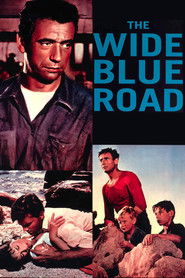 Squarci a fisherman lives with his...
Squarci a fisherman lives with his...The Wide Blue Road 1957
Squarciò, a fisherman, lives with his family on a small island off the Dalmatian coast of Italy. Like his fellow villagers, Squarciò struggles against harsh living conditions, a scarcity of fish in nearby waters and exploitation by the local wholesaler. But while the other fishermen continue to use nets, he goes out to the open sea to fish illegally with bombs. But Squarciò borrows money, loses his boat, and in a moment of supreme desperation, has to bomb directly off-shore, causing the hatred and rejection of his fellow fishermen. Trying to save his family, Squarciò and his young sons sail their new boat out beyond the local waters and bomb-fish again. But this time, the sea exacts a terrible toll…
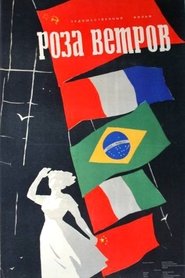 An international anthology about the struggles...
An international anthology about the struggles...The Wind Rose 1957
An international anthology about the struggles of female workers around the world.
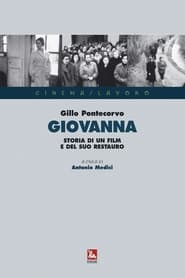 This short is set in the...
This short is set in the...Giovanna 1955
This short is set in the early 1950s in a small textile factory in central Italy (Prato). Giovanna and her fellow female workers decide to enact a protest against the direction of the factory's dismissal plan, by occupying the factory and continuing to work until the proprietor cancels the dismissals. None of these women can really afford to lose their jobs, as it is the only income in the family. All workers receive moral and material support from their families, apart from Giovanna, who bravely endures her husband's disapproval. Almost all the women hold out for thirty-five days in spite of the proprietor's attempts to break their resistance. At first he blocks the road to the factory, then he cuts off electric power to increase their isolation; finally, he tries to convince them to accept the dismissal of at least a smaller number of them. But the women overcome these obstacles, determined to resist...
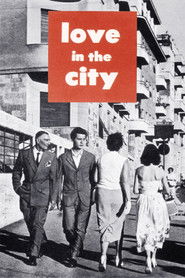 Six vignettes explore love and desire...
Six vignettes explore love and desire...Love in the City 1953
Six vignettes explore love and desire in Rome, from prostitution and heartache to unwed motherhood and the male gaze.
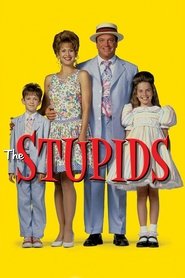 An incredibly dullwitted family unknowingly stumble...
An incredibly dullwitted family unknowingly stumble...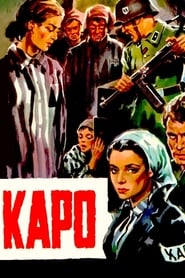 Determined to survive at any price...
Determined to survive at any price...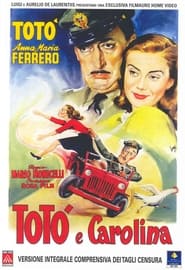 During a police raid at Villa...
During a police raid at Villa...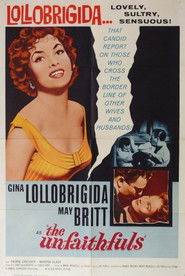 A group of respectable people are...
A group of respectable people are...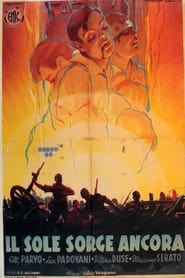 A neorealist tribute to the Italian...
A neorealist tribute to the Italian...